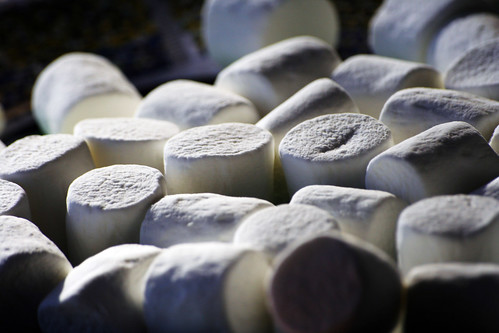Radio Lab
https://www.wnycstudios.org/story/96056-your-future-marshmallow
-
- Walter Mischel- Marshmallow study
- 2-5 years old
- Concept of delayed gratification starts around the age of 4
- They increased dramatically compared to 2-3 year olds
- Children would get 1 marshmallow now or if they waited they’d would get 2
- Tested 500~ children total
- After 10~ years the children who performed better in the initial test were successful later in school
- Seconds of their wait time had correlation to their SAT scores
- 210 points
- Seconds of their wait time had correlation to their SAT scores
- Also kept track of health, body mass, goal keeping
- Walter Mischel- Marshmallow study
This American Life
https://www.thisamericanlife.org/474/back-to-school
-
- Parents tend to be anxious about children’s brains and test scores
- What matters in child’s life is not the skills school teaches mostly
- GED- high school graduation exam
- Class claimed to change people’s attitude in 2 months
- If its true, why do we have schools
- Is GED same as high school?
- Farther investigation showed GED students performed slightly better than undergraduates, but didn’t perform as good as high school students
- Performance in occupation, reading, success rates in college/marriage/military….
- This didn’t show up in the test results, however
- GED and high school, in terms of score/passing, its only cognitive ability
- Non-cognitive ability affecting this?
- Character
- Self regulation, self consciousness, delaying gratification, resisting impulse
- Why testing?
-
- Testing can be showed in data form, while character is not quantifiable (cognitive)
- Character testing is also expensive, and school runs on taxpayer money (non-cognitive)
-
- Poverty is unhealthy environment that gives off stress to children, which in turn makes them perform less in school environment
- Stress hormones distracts students from learning
- Adrenaline- short term
- Cortisone- long term
- Learning part of the brain shuts off, and only fight or flight is active
- Repeated stress affects development of brain, especially pre-frontal cortex
- Hard to pay attention
- 1/4 of low income students had short attention span
- Kewauna- traumatic childhood (dramatic experience)
- Always angry, but never knew why
- Bad temper / anger control
- 72 referrals in 6th grade
- Sent to the ‘Wings’ program, was not a productive class
- Got arrested for punching a cop (assault of a police) when she was 15
- Her mom didn’t want Kewauna to have the same life as her
- Entered a program in high school that taught students non- cognitive skills
- Her grades and SAT scores improved after learning the non- cognitive skills, eventually got accepted to University
- Sent to the ‘Wings’ program, was not a productive class
- Always angry, but never knew why
- Stress from family issues couldn’t be resolved with school
- Non- cognitive skills can be learned even when someone is old
- Nurture at young age leads to better performance as an adult
- 8% of Chicago high school freshmen will graduate from college
- One goal program (Kewauna)? 85% of them returned to college as sophomores
